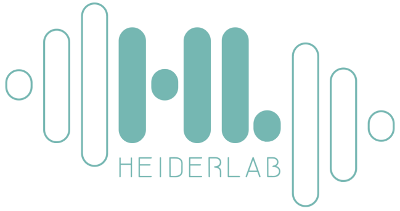CORona Drug InTEractions database
Repurposing of the approved small molecule drugs in order to inhibit SARS-CoV-2 S protein and human ACE2 interaction through virtual screening approaches
Hourieh Kalhor, Solmaz Sadeghi, Hoda Abolhasani, Reyhaneh Kalhor, Hamzeh Rahimi
Abstract
Most recently, the new coronavirus (SARS-CoV-2) has been recognized as a pandemic by the World Health Organization (WHO) while this virus shares substantial similarity with SARS-CoV. So far, no definitive vaccine or drug has been developed to cure Covid-19 disease, since many important aspects about Covid-19 such as pathogenesis and proliferation pathways are still unclear. It was proven that human ACE2 is the main receptor for the entry of Covid-19 into lower respiratory tract epithelial cells through interaction with SARS-CoV-2 S protein. Based on this observation, it is expected that the virus infection can be inhibited if protein-protein interaction is prevented. In this study, using structure-based virtual screening of FDA databases, several lead drugs were discovered based on the ACE2-binding pocket of SARS-CoV-2 S protein. Then, binding affinity, binding modes, critical interactions, and pharmaceutical properties of the lead drugs were evaluated. Among the previously approved drugs, Diammonium Glycyrrhizinate, Digitoxin, Ivermectin, Rapamycin, Rifaximin, and Amphotericin B represented the most desirable features, and can be possible candidates for Covid-19 therapies. Furthermore, molecular dynamics (MD) simulation was accomplished for three S protein/drug complexes with the highest binding affinity and best conformation and binding free energies were also computed with the Molecular Mechanics/Poisson–Boltzmann Surface Area (MM/PBSA) method. Results demonstrated the stable binding of these compounds to the S protein; however, in order to confirm the curative effect of these drugs, clinical trials must be done.
Source: PubMed
Related molecules
Related interactions
| Target | Drug | Type | Result |
|---|---|---|---|
| Spike glycoprotein | Diammonium Glycyrrhizinate | ||
| Spike glycoprotein | Rifaximin | ||
| Spike glycoprotein | Rapamycin | ||
| Spike glycoprotein | Digitoxin | ||
| Spike glycoprotein | Ivermectin |
| Target | Target affiliation | Drug | Type | Result |
|---|---|---|---|---|
| Target | Target affiliation | Drug | Type | Result |
| Name | Synonyms | Genes | Origin |
|---|---|---|---|
| Name | Synonyms | Genes | Origin |
| Name | Synonyms | PubChem | DrugBank | RCSB PDB | ATC |
|---|---|---|---|---|---|
| Name | Synonyms | PubChem | DrugBank | RCSB PDB | ATC |
| Title | Authors | DOI | Source | Article type | Date |
|---|---|---|---|---|---|
| Title | Authors | DOI | Source | Article type | Date |
| Title | Status | Phases | Start Date | Prim. Comp. Date | Comp. Date | First Post. Date |
|---|---|---|---|---|---|---|
| Title | Status | Phases | Start Date | Prim. Comp. Date | Comp. Date | First Post. Date |
CORDITE (CORona Drug InTEractions database) collects and aggregates data from PubMed, MedRxiv, BioRxiv, ChemRxiv and PMC for SARS-CoV-2. Its main focus is set on drug interactions either addressing viral proteins or human proteins that could be used to treat COVID. It collects and provides up-to-date information on computational predictions, in vitro, as well as in vivo study data.
The information provided is for research only and we cannot guarantee the correctness of the data.
Please contact dominik.heider@uni-muenster.de for further information.
Programmable access
There is an open API for access programmatically to the database. The API will print a JSON output:
- Interactions
https://cordite-api.uni-muenster.de/api.php?action=list&table=interaction
- Targets
https://cordite-api.uni-muenster.de/api.php?action=list&table=target
- Drugs
https://cordite-api.uni-muenster.de/api.php?action=list&table=drug
- Publications
https://cordite-api.uni-muenster.de/api.php?action=list&table=publication
- Clinical trials
https://cordite-api.uni-muenster.de/api.php?action=list&table=clinical_trial

